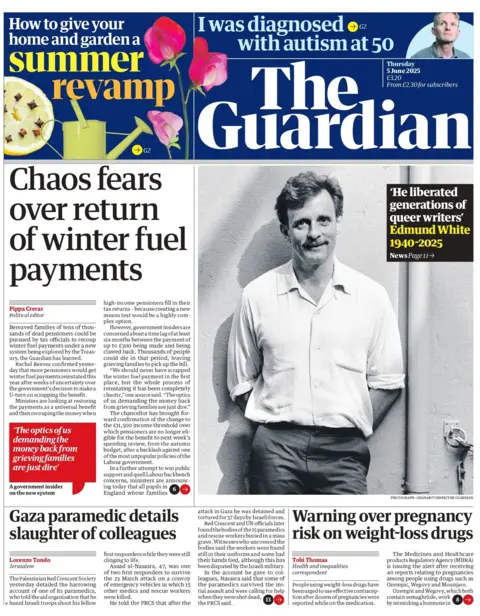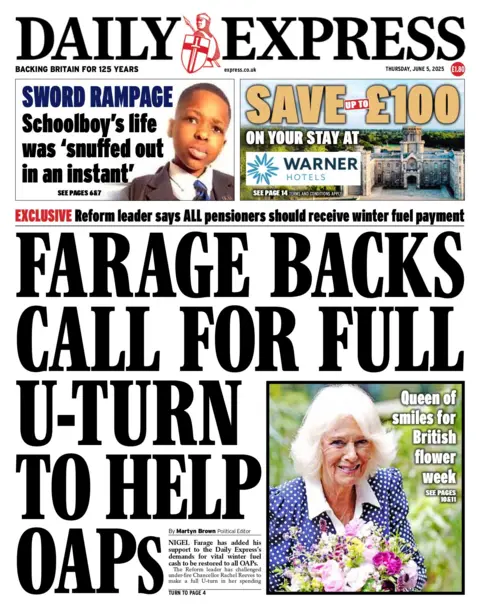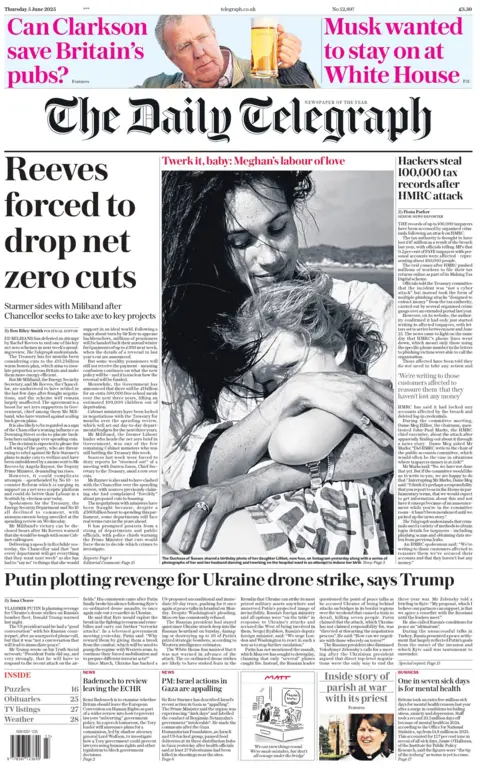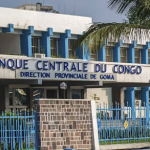‘Red Line for Palestine’: Protesters swarm UK Parliament
Thousands swarmed UK Parliament in a “Red Line for Palestine” protest, demanding Israeli sanctions and an arms embargo.
Source link
Thousands swarmed UK Parliament in a “Red Line for Palestine” protest, demanding Israeli sanctions and an arms embargo.
Source link
Vietnam’s declining birthrate is most pronounced in urban areas, while nationally, male births still outnumber female.
Vietnam has scrapped its longstanding two-child policy as it aims to reverse its declining birthrate and ease the pressure from an ageing society.
All restrictions were removed this week, and couples will be free to have as many children as they choose, according to Vietnamese media.
Minister of Health Dao Hong Lan said that a future shrinking population “threatens Vietnam’s sustainable economic and social development, as well as its national security and defence in the long term,” the Hanoi Times reported.
Between 1999 and 2022, Vietnam’s birthrate was about 2.1 children per woman, the replacement rate needed to keep the population from shrinking, but the rate has started to fall, the news outlet said.
In 2024, the country’s birthrate reached a record low of 1.91 children per woman.
Regional neighbours like Japan, South Korea, Taiwan, Singapore and Hong Kong all have declining birthrates, but their economies are more advanced than Vietnam’s.
Vietnam’s working-age population is expected to peak around 2040, according to the World Bank, and it aims to avoid the trap of “getting old before it gets rich”.
The country’s communist government introduced the two-child policy in 1988 to ensure it had adequate resources as it transitioned from a planned to a market economy. At the time, Vietnam was also still overcoming the effects of decades of war.

Vietnam’s two-child policy was most strictly enforced with members of Vietnam’s Communist Party, according to the Associated Press, but families everywhere could lose out on government subsidies and assistance if they had a third or fourth child.
As well as a declining birthrate, Vietnam is also facing significant imbalances across different regions and social groups, the Ministry of Health said.
The declining birthrate is most pronounced in urban areas such as Ho Chi Minh and the capital Hanoi, where the cost of living is highest. But there are also significant disparities in gender. Last year, Vietnam’s sex ratio at birth was 111 boys to every 100 girls.
The disparity between male and female births is most pronounced in North Vietnam’s Red River Delta and the Northern Midlands and Mountains, according to the World Bank, and lowest in the Central Highlands and Mekong River Delta.
Vietnam prohibits doctors from telling parents the sex of their children to curb sex-selective abortions, but the practice continues, with doctors communicating via coded words, according to Vietnamese media.
Left unchecked, the General Statistics Office warned there could be a “surplus of 1.5 million men aged 15-49 by 2039, rising to 2.5 million by 2059”.
In a bid to reverse this trend, the Health Ministry separately proposed tripling the fine for “foetal gender selection” to about $3,800.
IAEA head Grossi describes the new government as ‘committed to opening up to the world, to international cooperation’.
Syria’s new government has agreed to give inspectors from the International Atomic Energy Agency (IAEA) access to suspected former nuclear sites immediately, according to the agency’s chief, as Damascus makes further inroads to rejoining the international fold.
Rafael Grossi, the United Nations’ nuclear watchdog’s director-general, was speaking Wednesday to The Associated Press news agency in Damascus, where he met with President Ahmed al-Sharaa and other officials.
The visit was a key part of the IAEA’s efforts to restore access to sites associated with Syria’s nuclear programme since the ouster of President Bashar al-Assad in December.
The agency’s aim is “to bring total clarity over certain activities that took place in the past that were, in the judgement of the agency, probably related to nuclear weapons”, Grossi said. He described the new government as “committed to opening up to the world, to international cooperation” and said he is hopeful of finishing the inspection process within months.
Grossi’s visit also marks another step towards international acceptance of Syria’s new government after the United States and European Union lifted sanctions on the country last month. Israel has taken an opposite approach to its Western allies, launching more than 200 air, drone or artillery attacks across Syria over the past six months, despite the two countries holding indirect talks in early May.
An IAEA team visited some sites of interest last year. Syria under al-Assad is believed to have operated an extensive clandestine nuclear programme, which included an undeclared nuclear reactor built by North Korea in eastern Deir ez-Zor province.
The IAEA described the reactor as being “not configured to produce electricity” — raising the concern that Damascus sought a nuclear weapon there by producing weapons-grade plutonium.
The reactor site only became public knowledge after Israel, the region’s only nuclear power, launched air strikes in 2007, destroying the facility. Syria later levelled the site and never responded fully to the IAEA’s questions.
Grossi said inspectors plan to return to the reactor in Deir az Zor and three other related sites. Other sites under IAEA safeguards include a miniature neutron source reactor in Damascus and a facility in Homs that can process yellow-cake uranium.
While there are no indications that there have been releases of radiation from the sites, Grossi said, the watchdog is concerned that “enriched uranium can be lying somewhere and could be reused, could be smuggled, could be trafficked”.
He said al-Sharaa had shown a “very positive disposition to talk to us and to allow us to carry out the activities we need to”.
Grossi revealed that the IAEA is also prepared to transfer equipment for nuclear medicine and help rebuild the radiotherapy, nuclear medicine and oncology infrastructure in a health system severely weakened by nearly 14 years of civil war.
“And the president has expressed to me he’s interested in exploring, in the future, nuclear energy as well,” Grossi added.
A number of other countries in the region, including Saudi Arabia, the United Arab Emirates, Egypt and Jordan, are pursuing nuclear energy in some form.
























The United States has vetoed a United Nations Security Council (UNSC) resolution that called for an immediate, unconditional, and permanent ceasefire in Gaza, as Israeli strikes across the enclave have killed nearly 100 Palestinians in the past 24 hours amid a crippling aid blockade.
The US was the only country to vote against the measure on Wednesday while the 14 other members of the council voted in favour.
The resolution also called for the release of Israeli captives held in Gaza, but Washington said it was a “non-starter” because the ceasefire demand is not directly linked to the release of captives.
In remarks before the start of the voting, Acting US Ambassador Dorothy Shea made her country’s opposition to the resolution, put forward by 10 countries on the 15-member council, painfully clear, which she said “should come as no surprise”.
“The United States has taken the very clear position since this conflict began that Israel has the right to defend itself, which includes defeating Hamas and ensuring they are never again in a position to threaten Israel,” she told the council.
China’s Ambassador Fu Cong said Israel’s actions have “crossed every red line” of international humanitarian law and seriously violated UN resolutions. “Yet, due to the shielding by one country, these violations have not been stopped or held accountable.”
Al Jazeera’s senior political analyst Marwan Bishara noted that the US veto makes it “so isolated.”
“Clearly there is a gathering storm … with so many countries” that are standing against the US at the UNSC. “It’s only the US that is trying to block this converging and rising current against Israel and what it’s doing in Gaza … Israel is not defending itself in Gaza, Israel is defending its occupation and siege in Gaza,” Bishara added.
Despite global demands for a truce, Israel has repeatedly rejected calls for an unconditional or permanent ceasefire, insisting Hamas cannot stay in power, nor in Gaza. It has expanded its military assault in Gaza, killing and wounding thousands more Palestinians and maintaining a brutal blockade on the enclave, only allowing a trickle of tightly-controlled aid in where a famine looms.
At least 95 Palestinians have been killed on Wednesday and more than 440 injured, according to health officials in Gaza.
Al Jazeera’s Tareq Abu Azzoum, reporting from Deir el-Balah, said, “There has been a clear surge of attacks.” He said there were relentless Israeli strikes there in central Gaza and throughout the territory.
Meanwhile, Israel’s military warned starving Palestinians against approaching roads to the US-backed aid distribution sites run by the controversial Gaza Humanitarian Foundation (GHF), saying the areas will be “considered combat zones” while it halted aid for a whole day.
That move came after Israeli forces opened fire at aid seekers several times, killing more than 100 Palestinians and injuring hundreds more since the GHF started operating on May 27.
Witnesses said Israeli soldiers opened fire on crowds that massed before dawn to seek food on Tuesday. Images of starving Palestinians scrambling for paltry aid packages, herded in cage-like lines and then coming under fire have caused global outrage.
The Israeli military admitted it shot at aid seekers on Tuesday, but claimed that they opened fire when “suspects” deviated from a stipulated route.
At a hospital in southern Gaza, the family of Reem al-Akhras, who was killed in Israel’s mass shooting on Tuesday, mourned her death.
“She went to bring us some food, and this is what happened to her,” her son Zain Zidan said through tears. Her husband, Mohamed Zidan, said “every day unarmed people” are being killed. “This is not humanitarian aid – it’s a trap.”
The new aid distribution process – currently from just three sites – has been widely criticised by rights groups and the UN, who say it does not adhere to humanitarian principles. They also say the aid model, which uses private US security and logistics workers, militarises aid.
Ahead of the UNSC vote, UN aid chief Tom Fletcher again appealed for the UN and aid groups to be allowed to assist people in Gaza, stressing that they have a plan, supplies and experience.
“Open the crossings – all of them. Let in lifesaving aid at scale, from all directions. Lift the restrictions on what and how much aid we can bring in. Ensure our convoys aren’t held up by delays and denials,” Fletcher said in a statement.
The UN has long blamed Israel and lawlessness in the enclave for hindering the delivery of aid and its distribution in Gaza. Israel accuses Hamas of stealing aid, which the group vehemently denies, and the World Food Programme says there is no evidence to support that allegation.
UN Children’s Fund (UNICEF) spokesman James Elder, currently in Gaza, described the “horrors” he witnessed within just 24 hours. Speaking from al-Mawasi, Elder told Al Jazeera that Gaza’s hospitals and streets are filled with malnourished children. “I’m seeing teenage boys in tears, showing me their ribs,” he said, noting that children were pleading for food.
The UNSC has voted on 14 Gaza-related resolutions and approved four since the war began in October 2023. Wednesday’s vote was the first since November 2024.
Hamas is still holding 58 captives, a third of them believed to be alive, after most of the rest were released in previous short-lived ceasefire agreements or other deals.
Israel’s offensive has killed more than 54,000 Palestinians, mostly women and children, according to Gaza’s Health Ministry.
A federal court says removing the wife and children of Mohamed Soliman without due process could cause ‘irreparable harm’.
A United States judge has temporarily blocked the deportation of family members related to a suspect accused of throwing Molotov cocktails at a pro-Israel rally in Boulder, Colorado.
The ruling on Wednesday came after the administration of President Donald Trump arrested the wife of Mohamed Soliman and their five children in an effort to deport them.
Judge Gordon Gallagher wrote that Soliman’s wife, Hayam El Gamal, and her children cannot be removed from the country as long as his order stands.
“Moreover, the Court finds that deportation without process could work irreparable harm,” the judge said.
El Gamal, who has not been charged with a crime, had filed a legal petition for her release.
Soliman, meanwhile, has been charged with a federal hate crime over the attack on Sunday, which injured 12 people.
It is unclear if the Trump administration has any evidence that Soliman’s relatives committed wrongdoing, or if they were simply targeted for their association with him. Authorities have indicated that Soliman appears to have acted alone in the attack.
Still, Trump officials signalled they would take an aggressive approach to investigating and deporting individuals they perceived to be linked to “terrorism”.
“In light of yesterday’s horrific attack, all terrorists, their family members, and terrorist sympathizers here on a visa should know that under the Trump Administration we will find you, revoke your visa, and deport you,” Secretary of State Marco Rubio said in a social media post on Monday.
The Department of Homeland Security (DHS) confirmed on Tuesday the detention of Elgamal, her three daughters and her two sons, four of whom are minors.
“We are investigating to what extent his family knew about this heinous attack, if they had knowledge of it, or if they provided support to it,” Homeland Security Secretary Kristi Noem said in a video posted online. “Justice will be served.”
According to DHS, Soliman and his family arrived in the US on temporary visas in 2022 before applying for asylum.
Soliman’s visa expired in 2023. Media reports indicate that El Gamal, meanwhile, applied for an employment visa: She has a background as a network engineer.
Critics say the tactic of penalising the relatives of a criminal suspect is a form of unlawful collective punishment.
In the West Bank, for instance, human rights groups have denounced Israeli operations that demolished the homes of Palestinians related to suspects in armed attacks.
The attack in Colorado has been linked to Israel’s war on Gaza, which United Nations experts have described as a genocide. The suspect allegedly yelled “Free Palestine” during the fire-bombing.
The Washington-backed war has also sparked other violent incidents on US soil. The incident in Colorado followed the killing of two Israeli Embassy staff members in Washington, DC, last month.
In October 2023, a six-year-old Palestinian boy was stabbed to death in the Chicago area in another crime linked to the war. The 73-year-old suspect reportedly told the boy’s mother that Muslims “must die” as he attacked them. He was sentenced to 53 years after being convicted of murder and hate crimes.
Weeks later, three Palestinian American students were shot and severely wounded in Vermont.
The war on Gaza has killed at least 54,607 Palestinians, according to health officials.
Novak Djokovic beats Alexander Zverev to set up a French Open semifinal showdown with Jannik Sinner at Roland Garros.
A crucial moment arrived more than two and a half hours into Novak Djokovic’s French Open quarterfinal victory over Alexander Zverev. It was the fourth set, and Djokovic led, but Zverev was in possession of a break point and a chance to get back into the match.
They engaged in a 41-stroke exchange, the longest of a buggy and breezy Wednesday night, and Djokovic came out on top, smacking a forehand winner. He stayed in place afterwards, breathing heavily, with hands on his hips, scanning the standing ovation from thousands of Court Philippe-Chatrier spectators.
Djokovic might be 38 now. He might have slogged through a pair of three-match losing skids this season and slid to sixth in the rankings. What has not changed is Djokovic’s determination or his ability to be his best on big stages — and now he is two wins from a record 25th Grand Slam title.
Djokovic proved too much for third seed Zverev, a man who’s a decade younger and was last year’s runner-up at Roland-Garros, winning 4-6, 6-3, 6-2, 6-4 to set up a semifinal showdown against top-seeded Jannik Sinner.

Earlier on Wednesday, Sinner continued his overpowering run through the bracket by dismissing Alexander Bublik 6-1, 7-5, 6-0. Sinner has not only not dropped a set so far, but he has ceded a total of only 36 games through five matches.
So Friday will bring a tantalising showdown between the player many consider the top player in tennis history, Djokovic, and the player who is at the top of the men’s game at the moment, Sinner. Djokovic and Sinner are tied 4-4 in their head-to-head series, but Sinner has won the last three matchups.
No one has spent more weeks at number one in the rankings than Djokovic. No one has won more major championships or reached more major semifinals than his total that now stands at 51 after becoming the second-oldest man to get that far in Paris.
Sinner, 23, is a three-time Grand Slam champion. That includes last year’s US Open and this year’s Australian Open, so his unbeaten streak at majors is now at 19 matches. He’s also won his last 26 sets at those events.
“He’s playing fast. He’s playing smart,” Bublik said. “He’s in another dimension with all the aspects of the game.”
Highlights from Leicester as England women take on the West Indies.
Source link
The Electoral Commission head has said no revision of the electoral register will take place before the poll.
Four prominent opposition figures in the Ivory Coast have been excluded from the final electoral list, according to the Electoral Commission, leaving them ineligible to contest pivotal October presidential elections in a nation with not-too-distant memories of civil war and coup attempts.
“My elimination from the electoral list by the Independent Electoral Commission [CEI] is a sad but eloquent example of Ivory Coast’s drift towards a total absence of democracy,” Tidjane Thiam, leader of the main opposition Democratic Party of Ivory Coast (PDCI), said in a statement on Wednesday.
Thiam’s statement came two days after CEI head Ibrahime Kuibiert Coulibaly announced that no revision of the electoral register would take place before the vote.
Thiam, who was widely seen as the main challenger to President Alassane Ouattara, was struck from the voter roll in April after a court ruled that he was not eligible to run for president because of his dual Ivorian-French nationality. Thiam, who was born in Ivory Coast, received French nationality in 1987 but renounced it in March.
Other major Ivorian candidates excluded from the vote include former President Laurent Gbagbo and his close ally Charles Ble Goude, who was charged with crimes against humanity related to the civil war.
The former prime minister and rebel leader Guillaume Soro is also barred. He was sentenced in absentia to life in prison for organising a coup.
None of the four will be able to run in the October 25 presidential race or vote.
Ouattara, who has been in power since 2011, is included on the electoral register but has yet to announce if he will seek a fourth term.
In 2015 and 2020, Ouattara won with more than 80 percent of the vote.
Thiam has appealed to the UN Human Rights Committee, his party said.
His lawyer Mathias Chichportich said in a statement sent to the AFP news agency that depriving the opposition leader of “his political rights” was “a serious violation of Ivory Coast’s international commitments”.
Gbagbo’s African Peoples’ Party-Ivory Coast (PPA-CI) complained that the authorities “did not choose to listen to the advice, the calls for discussion, for reason”, its Secretary-General Jean-Gervais Tcheide told AFP.
“It’s a shame they chose to force their way through,” he said, adding: “We’re not going to let them do it.”
Other opposition figures who announced their plans to run for the presidency are featured on the final electoral list.
They include former First Lady Simone Ehivet Gbagbo, who, speaking on behalf of an opposition coalition, said that the conditions were not met for a “peaceful, calm election”.
During the 2020 presidential election, a revision of the electoral list took place in June ahead of the October polling day.
The final electoral register for this year’s ballot includes the names of 8.7 million voters, in a country with a high immigrant population and where nearly half of the 30 million inhabitants are under the age of 18.
Authorities deny any political interference in the electoral process, insisting that they respect decisions made by an independent judiciary.
More than 100 Palestinians have been killed trying to get aid at distribution centres run by the US- and Israeli-backed Gaza Humanitarian Foundation over the past eight days. This is a timeline of the key events that led to the UN labelling it a ‘death trap’.
Published On 4 Jun 20254 Jun 2025
The US president says Putin also suggested he would participate in talks aimed at reaching a new nuclear deal with Tehran.
Russian President Vladimir Putin has told Donald Trump in a telephone conversation that Moscow would have to respond to the recent Ukrainian drone attacks, the US president said.
Trump said on Wednesday that the two men “discussed the attack on Russia’s docked airplanes, by Ukraine, and also various other attacks that have been taking place by both sides.”
Putin “did say, and very strongly, that he will have to respond to the recent attack on the airfields”, Trump said in a social media post.
Al Jazeera’s Kimberly Halkett said that Trump described his 85-minute phone call with Putin as “a good conversation but not one that would lead to immediate peace”.
“You have to remember that Donald Trump, when he came into office, was very confident that he could end this war on day one, but here we are now in June and the fact is … this is far from resolved,” she said from the White House.
Moscow said earlier on Wednesday that military options were “on the table” for its response to Ukrainian attacks deep inside Russia and accused the West of being involved in them.
Russia also urged the US and Britain to restrain Kyiv after the attacks, which Ukrainian officials have lauded as showing Kyiv can still fight back after more than three years of war.
British and US officials have said they had no prior knowledge of the weekend attacks on Russian nuclear-capable long-range bombers.
In his social media post, Trump said he and Putin also discussed Iran. Putin suggested he would participate in talks aimed at reaching a new nuclear deal with Tehran, Trump said.
“I stated to President Putin that Iran cannot have a nuclear weapon and, on this, I believe that we were in agreement,” Trump said. He accused Iran of “slow-walking” decisions regarding the talks.
Putin told Iran’s President Masoud Pezeshkian that Moscow was ready to help advance talks on a nuclear deal, the Kremlin said on Tuesday.
But Iran’s Supreme Leader Ayatollah Ali Khamenei said earlier on Wednesday that Washington’s proposal was against Tehran’s national interests, amid sharp differences over whether Tehran can continue to enrich uranium.
US President Donald Trump said on Wednesday he had a “good conversation” with Russian President Vladimir Putin, in a call about Ukraine’s recent drone attack and Iran.
Following Ukraine’s major drone attack deep on air bases inside Russia, Trump reported that Putin told him Russia “will have to respond”.
Trump also warned in a social media post that the phone call, which lasted more than an hour, would not “lead to immediate Peace”.
The two leaders also discussed Iran, and Putin suggested he could help with nuclear talks with the country.
The conversation between the two leaders marks the first since Ukraine launched an audacious attack striking Russian air bases on 1 June, targeting nuclear-capable long-range bombers.
In his post, Trump said that Putin told him – “very strongly” – that he “will have to respond to recent attacks on the airfields.”
Last week, Trump appeared to set a two-week deadline for Putin, threatening to change how the US is responding to Russia if he believed Putin was still “tapping” him along on peace efforts in Ukraine.
The comment was one of a string of public critical remarks by Trump, who earlier had said that Putin had gone “absolutely crazy” and is “playing with fire” when Russia intensified drone and missile attacks on targets in Ukraine.
Trump made no mention of a deadline or his previous remarks in Wednesday’s post on his Truth Social platform.
The post also comes just days after a second round of direct peace talks between the warring sides, held in Istanbul, ended without a major breakthrough, although the two sides agreed to swap more prisoners of war.
Ukrainian negotiators said Russia rejected an “unconditional ceasefire” – a key demand of Kyiv and its Western allies including the US.
The Russian team said they’d proposed multi-day ceasefires in “certain areas” of the frontline in Ukraine, although they gave no further details.
Trump has previously – and repeatedly – said he believes the two sides are making progress, despite ongoing fighting on the frontline and aerial attacks carried out in both Russia and Ukraine.
Additionally, Trump said that on the call he and Putin discussed Iran, and he believed the two “were in agreement” that “Iran cannot have a nuclear weapon”.
The US reportedly proposed Iran halt all production of enriched uranium – which can be used to make reactor fuel but also nuclear weapons – and instead rely on a regional consortium for supplies. Iran has not yet responded to the plan presented at talks last Saturday.
According to Trump, Putin “suggested that he will participate in discussions with Iran and that he could, perhaps, be helpful in getting this brought to a rapid conclusion.”
“It is my opinion that Iran has been slow walking their decision on this very important matter,” Trump wrote. “We will need a definitive answer in a very short period of time.”
“‘Oya Oya, tell am make him wire us ₦200k before we leave you; if not, na Kaduna we go carry you go like this,” yelled the driver who abducted Precious Joseph during a phone call with her fiancé.
What was supposed to be a normal evening for Precious, a businesswoman in her thirties in Abuja, North-central Nigeria, turned out to be a harrowing ordeal that left her traumatised.
It was around 6 p.m. in February when the incident happened. That evening, she was patiently waiting for a roadside taxi in Gwarimpa, popularly called ‘along’, after receiving a call from an unhappy customer waiting at her other shop branch in Garki.
A green-coloured Golf taxi stopped for her — a lady sat in the front, and two men occupied the rear seat. Unsuspecting, she entered the vehicle after negotiating the fare. It wasn’t until they approached the Oando Filling Station along the Gwarimpa highway that she realised something was deeply wrong.
“The lady in the front started winding up her window; then the driver and the guy next to me did the same,” Precious recounted. “Mine was the only window still down, so the man beside me reached over to wind it up. I refused. That’s when he slapped me.”
Her panic escalated after the driver confirmed her worst fears: “You think say we be normal human beings? You de craze?” She recalled him saying.
From that moment, she knew she was in the hands of ruthless criminal drivers notorious for robbing and sometimes harming unsuspecting commuters in Abuja. The criminal enterprise is commonly known as ‘one-chance’.
“I told them to take whatever they wanted. But the driver just laughed and said, ‘We don’t want anything from you yet. When we reach where we de go, we go know whether we want something,’” Precious recounted.
Her panic intensified when the driver asked her what she could offer because they had been paid ₦5 million to bring her.
At that moment, she peed on herself.
Precious is just one of many victims of one-chance operations in Nigeria’s capital city.
These operations, where criminals disguise themselves as taxi drivers and passengers to lure unsuspecting commuters, are not a new phenomenon. It is not only a menace widely recognised by Abuja residents but also one of the most persistent security threats that has remained a frightening norm in the capital city and other states in Nigeria.
Several victims told HumAngle that these criminal gangs operate with precision, selecting their victims carefully based on vulnerability, isolation, and distraction.
Unsuspecting commuters are lured using gang members of any gender, who disguise themselves as everyday passengers. In some cases, these members are scattered along different routes, where they are then picked up by the drivers at intervals to avoid suspicion. Within minutes of the ride, they then reveal their true intentions.
Findings by HumAngle, based on interviews with victims, revealed that some of the hotspots for one-chance operations in Abuja include but are not limited to the Gwarimpa expressway, Wuse, Berger Roundabout, Area 1, Central Area, Jabi, and Lugbe Axis.
Though there is no publicly available data specific to one-chance victims or incidents in Nigeria, a report published by The Guardian, a Nigerian newspaper, revealed that over 100 cases have been recorded since 2015.
Some of these tragic incidents, as also reported by HumAngle in the past, have led to injuries and, in some cases, death due to their inability to provide a police report. This raises concerns about how much value is being placed on the lives of average citizens.
In June 2024, Prisca Chikodi, a personnel of the Directorate of Road Traffic Services (DRTS), was killed by one-chance operators after boarding a vehicle at Area 1 bus stop. Her body was later found in Utako, with no visible signs of gunshot wounds or stabbing.
This year, precisely in February, a social media clip revealed how two suspected one-chance operators were apprehended by mobs in Lugbe. The suspects had allegedly picked up a young woman, who raised an alarm upon sensing danger. Bystanders intercepted the vehicle, rescued her, and took justice into their own hands.
Kabir Adamu, a security expert and the director of Abuja-based Beacon Security Intelligence, explained that despite attempts by previous commissioners of police and the Federal Capital Territory Administration (FCTA) to end the menace through the banning of illegal parks, advocacy, and arresting drivers or vehicles that are not registered, it has not succeeded in reducing the crime in the FCT.
He also revealed that the lack of efficient public transportation in the capital city is one of the reasons why ‘one-chance’ remains a growing menace that needs urgent attention, as residents increasingly experience horrific ordeals.
“Public transportation is not adequately provided in the FCT, which is principally a working city with a lot of workers with limited public transportation arrangements. The need for transportation is extremely high, and those who cannot afford to use the registered taxis will now have to depend on less expensive rides, making them more vulnerable to criminals. Until we address public transportation needs in the FCT, I’m afraid to say this challenge will remain with us,” Kabir told HumAngle.
Some victims of one-chance incidents revealed that their horrifying experiences have pushed them to use alternative and, to a certain extent, safer modes of transportation, like ride-sharing apps for commuting within the capital city.
Mardiya Umar, another victim of the one-chance crime, told HumAngle that even though ride-sharing apps have their share of challenges, they offer a much safer alternative compared to on-the-spot taxis, which are mostly used for one-chance operations in Abuja.
“[Ride-sharing apps] are not completely a haven; it is just something we are trying to explore, but I will say that it is safer, and right now, I don’t even care about the exorbitant prices. If I can afford it, why not? If I can’t afford to be somewhere at a particular time, I’d rather stay in my house because the trust issue is still there,” Mardiya said.
For Precious, the horror was far from over.
After inflicting physical harm, the criminals ensured that her nightmare extended beyond just that. They were not merely looking for cash and valuables; they wanted access to her bank accounts.

Before then, the woman, a member of the one-chance syndicate, seated in the front seat, demanded her phone and bag. As she scoured through her belongings, they found her credit card. That signalled the commencement of the extortion spree.
“I had ₦27,000 cash that I made from my shop in Kagini before leaving; she then asked me how much I had in my account,” Precious recalled.
Due to the psychological and physical horrors she was experiencing, she explained to them that she had three bank accounts but was only carrying the card for one. They ordered her to transfer all the money from the other accounts into the one linked to the available card so they could withdraw it.
Under duress, she complied, giving them access to her account and transaction PIN.
As they continued the journey, one of the criminals got out at multiple locations to withdraw cash from her account. She remembers them saying, “This money never do. E be like say this girl get money.”
Helpless and trapped in the backseat, she had no way to resist.
As the one-chance criminals continued their crime spree stretching through the night, Precious’s phone rang — it was her fiancé calling to query why she hadn’t reached, as the customer was still waiting for her. Her fiancé was in the shop when she left for Garki and promised to come back as soon as possible so that they could go home together.
“They gave me the phone and told me to tell him I had been kidnapped. They demanded that I tell him to transfer ₦200,000 or they would take me to Kaduna,” about four hours away in Nigeria’s North West.
The moment she spoke, he suspected something was off and asked if she was okay. She had barely responded before they took the phone from her, demanding a ransom from him, threatening to take her to an undisclosed location where they could extract even more money if he didn’t comply.
Her fiancé begged them, told them he didn’t have the money and that the bank network was bad. But they just kept repeating, “Na you no bail am o.”
About 30 minutes later, Precious’ fiancé sent money into the account as instructed, and the criminals withdrew the amount before letting her go. The horrifying seven hours left her disoriented, alone, and vulnerable.
“I wasn’t aware that they were on the Abuja-Kaduna highway until they dropped me in a nearby bush. I had to trek out to the express,” Precious said.
Vehicles sped by, none stopping to help her. It is a dangerous stretch of highway, and no driver wants to risk falling victim to another crime. She kept walking until she found a vehicle that brought her back to Abuja.
At the centre of one-chance and car break-ins in Abuja, victims juggle between overcoming trauma and the lack of effective law enforcement response to track criminals, either through car registration linked to phone numbers, Bank Verification Number (BVN), or National Identity Number in the event of such crimes.
After enduring physical abuses (especially for one-chance victims), financial losses, and psychological trauma, some victims told HumAngle that they don’t even report the incidents to security operatives due to the hurdles they are likely to face. Even those who report barely get help.
Mary Akwu is one such victim.
She entered a one-chance vehicle along the Gwarimpa expressway and was beaten by the criminals, leaving her with a swollen face. When she visited the police station at Games Village in Garki the following day, the officers told her that the crime happened outside their jurisdiction, so they referred her to the Wuye division.
After meeting with the Divisional Police Officer at Wuye, she was asked to visit a hospital and her bank before they could proceed with the case.
When she returned the next day, the Investigating Police Officer (IPO) assigned to the case told her that she needed to make some payments to cover the running cost of the investigation, but since she didn’t have the money in her account due to the incident, he told her to go and work for some months to gather the amount needed – she left without help from the police, only with the physical and mental scars of the incidents.
Since then, Mary has been caught up in traumatic rollercoasters. She told HumAngle that the experience from that incident made her scared of everything.
“I had Post-Traumatic Stress Disorder,” she said. “I would scream in my sleep at night. I was scared of going anywhere. Everybody seemed like they were going to hurt me. I avoided every male figure around me. Unconsciously, I was traumatised. I got a job and had to quit because of how the man was talking to me. I didn’t trust him.”
They transferred ₦530,000 from her account, most of which belonged to her church group. When she reported the incident to the church, her pastor notified the church’s head of security, who advised them to move the case to the Force Criminal Investigation Department (FCID) in Abuja.
On getting there, the FCID informed them that they would write to the initial IPO at Wuye to transfer the case. Before then, they also requested some payments be made to ‘facilitate’ the process.
“We paid, and they told us they were going to work on the case. They called me like two times to get the bank details and some other things. Since then, I haven’t heard from FCID and the IPO. Even the suspect whose account the money was traced to was unreachable,” Mary told HumAngle.
Aside from the cash, the criminals went away with her jewellery.
“I haven’t recovered anything. I’m still working on balancing my life,” she said.
Security experts like Kabir believe that greater synergy and less territorial behaviour among public security managers would allow government agencies and private sector players to combine their cybersecurity strengths and better support efforts to combat these crimes.
“The public security cybersecurity capability is extremely weak, and its refusal to integrate the non-security cybersecurity component that we have is also a huge challenge. We have the Ministry of Communication and Digital Economy, where we have parastatals like the Nigerian Communications Commission and Nigerian Information Technology Development Agency that have enormous capability to support the sector, but because of the territorial nature of our public security managers, they don’t see these players as capable of supporting them,” he said.
“So, what they are trying to do is to raise their capabilities independent of this other existing one, and because of that, you now see a huge gap, and it’s affecting virtually everything cyber-related in the country.”
Emmanuel Onwubiko, the National Coordinator of the Human Rights Writers of Nigeria, added that one-chance operators are exploiting existing loopholes within certain government agencies to execute their plans and unleash violence on citizens.
While calling for the installation of Closed Circuit Television (CCTV) for improved intelligence across the FCT, Onwubiko said synergy between the police, Federal Road Safety Corps (FRSC), and other security forces will help fight the crimes of one-chance and car burglary.
“It is important that the government examines the state of the FRSC because it has collapsed. The licensing management system has collapsed. All kinds of people are driving without properly registered information somewhere because the FRSC cannot even produce licences swiftly,” he noted.
On the recurring complaints that police officers often demand money from victims before investigating their cases, Josephine Adeh, the FCT Police Public Relations Officer, told HumAngle that the command maintains a zero-tolerance policy towards unprofessional conduct.
“Incidents of one-chance robbery in the FCT have been reduced to the barest minimum,” she said. “The current Commissioner of Police has employed extensive and strategic tactics to effectively combat one-chance activities within the FCT. These proactive measures have yielded positive results, as evidenced by the significantly low, often non-existent reports of such incidents in recent times.”
The police spokesperson added that the FCT Command works closely with victims of one-chance robberies who come forward to report their cases, insisting that no one is ever asked to pay before their complaints are addressed.
“The Command remains committed to providing professional and compassionate support to all victims of crime,” she added.
But for Precious, Mary, and the many others who have suffered at the hands of one-chance and car break-in syndicates, the trauma runs far deeper than financial loss. While some bruises have faded with time, the psychological scars linger. And as long as the criminal networks continue to exploit gaps in the system and prey on unsuspecting commuters, the sense of fear and vulnerability remains, a heavy price for simply trying to get home or to work.
Rally is held as British PM Keir Starmer calls Israel’s actions ‘intolerable’, addressing lawmakers in Parliament.
Pro-Palestine campaigners have rallied against Israel’s punishing war on Gaza, gathering outside the British Parliament in London and demanding a full arms embargo and that hard-hitting sanctions be imposed on the Israeli government.
Wednesday’s march, organised by the Palestine Solidarity Campaign (PSC), came as British Prime Minister Keir Starmer took weekly questions from parliamentarians.
Thousands of protesters created a “Red Line for Palestine”, wearing red while encircling the building.
Starmer told Parliament that Israel’s actions in the besieged and bombarded enclave are “appalling” and “intolerable”.
“It is right to describe these days as dark,” Starmer said. “We have strongly opposed the expansion of Israeli military operations, and settler violence, and the blocking of humanitarian aid.”
Starmer added that the UK has imposed sanctions, suspended free trade negotiations, and is currently considering further sanctions.
But the UK leader, his Foreign Secretary David Lammy, and his government have come under heavy criticism in the UK for not speaking more forcefully backed by actual action earlier in the war, and for not doing enough now as Palestinians face what United Nations Secretary-General Antonio Guterres has called the “cruellest phase of this cruel conflict”.
Al Jazeera’s Rory Challands, reporting from London, said the protest went on for several hours and throughout Starmer’s entire speech to Parliament.

“There was a red line around the whole of Parliament,” Challands said.
“These protesters had formed a cordon, essentially all the way down from Parliament to the first bridge … that goes across to the other side of the [River] Thames, and they came back up … and returned over Westminster Bridge to join up here to make a full loop,” he added.
According to Challands, protesters say that their “red line” is to show that the UK government should have its own red lines when it comes to Gaza.
It has not had “sufficient” red lines in place, he said. “The protesters say there should have been red lines before 54,000 deaths.”
In his remarks, Starmer also called for an end to the siege and said humanitarian aid must reach Gaza quickly and in the required quantities.
Israel has maintained a crippling blockade on the territory, barring the entry of much-needed aid, including food, medicine, clean water, and fuel required by generators. A famine now looms as more than two million people are facing starvation, the UN has warned.
Meanwhile, a controversial, United States-backed group that runs aid distribution points in Gaza – the Gaza Humanitarian Foundation (GHF) – has suspended operations for a full day. The move came after Israeli forces opened fire at hungry aid seekers several times, killing dozens of Palestinians and injuring hundreds more since the organisation started operating in the enclave on May 27.
The killing of people desperately seeking food supplies has triggered mounting international outrage as many say aid is being weaponised and with the UN’s Guterres demanding an independent inquiry.
Israel’s war on Gaza has killed at least 54,607 Palestinians and wounded 125,341, according to the Health Ministry.
The Dutch government collapsed on Tuesday after far-right politician Geert Wilders pulled out of the right-wing coalition after a dispute over anti-immigration measures his party had proposed.
Wilders’ decision prompted the Dutch cabinet and Prime Minister Dick Schoof to resign.
Here is what triggered the government’s collapse, and what happens next:
Wilders announced the withdrawal of his right-wing party, the Party for Freedom (PVV), from the 11-month-old right-wing Netherlands coalition government. Wilders said the other three parties in the coalition had failed to back his plans to crack down on asylum for refugees.
“No signature under our asylum plans. The PVV leaves the coalition,” Wilders wrote in an X post on Tuesday after a brief meeting in parliament with party leaders. Besides PVV, the coalition comprised People’s Party for Freedom and Democracy (VVD), the Farmer-Citizen Movement (BBB) and the New Social Contract (NSC).
On May 26, Wilders announced a 10-point plan to extensively slash migration, deploying army officials at the Dutch land borders and rejecting all asylum seekers. Wilders threatened, back then, that his party would pull out of the coalition if migration policy was not toughened.
The four parties cumulatively held 88 seats in the country’s 150-seat House of Representatives.
The PVV won the latest November 2023 election with 23 percent of the vote and 37 seats, the highest number of seats in the parliament out of all parties.
The majority mark in the House is 76 seats. The withdrawal leaves the coalition with only 51 seats.
After Wilders announced the withdrawal, an emergency cabinet meeting was called. After this, Schoof announced that he would step down, hours after the PVV withdrawal.
“I have told party leaders repeatedly in recent days that the collapse of the cabinet would be unnecessary and irresponsible,” Schoof said in the emergency cabinet meeting. “We are facing major challenges both nationally and internationally that require decisiveness from us.”
Other leaders in the coalition called Wilders “irresponsible” and blamed him for putting his own political interests ahead of the country.
“There is a war on our continent. Instead of meeting the challenge, Wilders is showing he is not willing to take responsibility,” said Dilan Yesilgoz, leader of the VVD, which has 24 seats in the the House.
“It is irresponsible to take down the government at this point,” NSC leader Nicolien van Vroonhoven said about Wilders. The NSC has 20 seats.
Head of the opposition GreenLeft-Labour alliance Frans Timmermans said he could “see no other way to form a stable government” than early elections.
Schoof will now formally submit his resignation to the head of state, Dutch King Willem-Alexander. After this, elections are expected to be called. It is likely that the election will be held sometime in October or November, based on previous cycles.
As of May 31, polls show that Wilders’ PVV has lost a little of its support, from 23 percent in the 2023 election to 20 percent.
This brings the party almost at par with the GreenLeft-Labour alliance, which has 19 percent of support and 25 seats in the lower house of parliament, the second highest number of seats after the PVV.
The fragmented politics of the Netherlands makes it difficult to predict which party will win the election. It is unlikely for a single party to win the 76-seat majority and it takes months for a coalition to form. According to the Dutch election authority’s data, no single party has ever won a majority since the first direct elections in 1848.
Schoof has said he and the other ministers of the coalition will continue with their positions in a caretaker government until a new government is formed after elections.
The political crisis comes as the Netherlands is scheduled to host a summit of NATO leaders at The Hague on June 24-25. Mark Rutte, the current secretary-general of NATO, was the prime minister of the Netherlands from 2010 to 2024. Rutte was affiliated with the VVD.
Schoof had also been involved in European efforts to provide support to Ukraine in its war against Russia. In February, the Dutch PM was present at a meeting with other European leaders in Paris where the leaders pledged to provide Ukraine with security guarantees.
Carrick started his coaching career with Manchester United, with whom he won five Premier League titles in his playing days, after retiring in 2018.
He had a spell in caretaker charge of the team in November 2021 after the departure of Ole Gunnar Solskjaer but left when Ralf Rangnick was appointed in December.
Boro turned to him in October the following year after a disastrous start to the season saw them sack Chris Wilder with the club in the relegation zone.
Carrick immediately turned their fortunes around as they flew up the table and into promotion contention.
They ultimately finished fourth for a first play-off campaign in five years but were beaten by Coventry in the semi-finals.
They fell just short of another Premier League push in the following season, as they finished eighth, four points off sixth.
Last season was similar as they headed into the final six games in the play-off spots but came up short in the end.

The government of the Democratic Republic of Congo has denied responsibility for the closure of banks and financial institutions in areas controlled by M23 rebels, citing security concerns for individuals with savings accounts in those areas.
Before the Rwanda-backed rebels took control of Goma in North Kivu and Bukavu in South Kivu, banks and other financial institutions in those regions had ceased operations.
The rebels’ reopening of the Caisse Generale d’Epagne du Congo (CADECO) has not produced the expected results but aggravated the situation, especially as CADECO branches only pay taxes to the rebel authorities.
There have been ongoing calls for the authorities in the DR Congo to reopen banks to alleviate the financial hardships faced by the population. In response, government spokesperson Patrick Muyaya explained that the banks are not closed due to the government’s decision but rather due to security concerns affecting individuals with savings accounts.
Muyaya expressed concerns during a press briefing, stating that ongoing tensions in Kivu have led to punitive measures against its populations due to the banking sector’s dysfunction. “Let them not lie to you. These people do not have the right to utilise the American dollar in any way,” he said, emphasising the legal ramifications of engaging with movements under U.S. sanctions.
He clarified the situation by explaining that “the banks are not closed because the government wants it, but because of how the system functions and the security conditions,” indicating that the closures are a complex issue tied to broader systemic and security problems. The government’s spokesperson says he hopes for expeditious peace initiatives to alleviate the suffering endured by the Congolese communities affected by rebel control, which he attributed to support from Rwanda.
“The President of the Republic and all of us in government are working to push all the processes going on, and this situation, the butchers in Goma, must quickly stop. I recall the necessity for all of us always to express the sentiment of support and solidarity to affected populations,” he added.
However, Joseph Kabila, a former president of the DR Congo, criticised the government for neglecting the people, particularly by disconnecting local financial institutions from the national banking network, and restricting the movement of people and goods.
Calling for the humanisation of the living conditions in this part of the country, the former president exhorted the authorities to protect the population and insisted that “the army, justice and other structures in charge of security and order must in reality be in the service of the population and respond to their aspirations”.
The Bishops of the National Episcopal Conference of Congo also expressed their disquiet at the persistence of the multifaceted crisis affecting the DR Congo. In a statement made public on Friday, May 16, the religious leaders deplored the degradation of the political climate and the deterioration of the socio-economic situation, especially in the zones under the control of the M23/AFC rebels supported by Rwanda.
For bishops, the closure of banks and airports in the territories under the control of the M23/AFC rebels imposes precarious and challenging living conditions on several families.
The government of the Democratic Republic of Congo has disclaimed responsibility for the closures of banks in regions controlled by M23 rebels, attributing them to security concerns.
Prior to the rebels’ takeover, financial institutions in Goma and Bukavu had already halted operations. The rebels reopened CADECO, worsening the situation as taxes are only paid to the rebel authorities. Government spokesperson Patrick Muyaya emphasized that banks closed due to security conditions, not government directives, and stressed the legal issues with using currency under U.S. sanctions.
Former President Joseph Kabila criticized the government for neglecting the people by severing local financial institutions from the national network. He urged the protection of affected populations, calling on security forces to prioritize public welfare. The National Episcopal Conference of Congo’s Bishops expressed concern about the ongoing crisis, highlighting the deteriorated socio-economic conditions in areas under rebel control, worsened by bank and airport closures, impacting residents’ living conditions.
The government aims for swift peace initiatives to mitigate these hardships.
Al Jazeera’s @khalidmajzoubofficial addresses Israel's version of events on a deadly day in Gaza
Source link
The Hajj pilgrimage began on Wednesday. Some 1.8 million Muslims from across the globe are expected to gather in the Saudi holy city of Mecca for the annual gathering that will conclude on June 8.
Hajj is a once-in-a-lifetime obligation for all adult Muslims who are physically and financially able to make the journey.
Throughout the sacred pilgrimage, pilgrims drink from Zamzam, a wellspring believed to have been flowing for more than 4,000 years, nourishing them to this day.
But where does this water come from, and why does it hold such deep significance?
Zamzam water comes from a well, located within the Grand Mosque of Mecca (Masjid al-Haram), some 21 metres (69 feet) east of the Kaaba.
The Zamzam well is beneath the Mataf area, which is the white marble-tiled space surrounding the Kaaba where pilgrims perform Tawaf.

In 1962, King Saud commissioned the expansion of the Mataf area to better accommodate the growing number of pilgrims. As part of this project, the opening of the Zamzam well was lowered and enclosed in a basement approximately 2.7 metres (9 feet) deep beneath the Mataf.
In 2003, the basement entrances were closed, and drinking fountains were relocated to the sides of the Mataf to allow for further expansion.
Today, pilgrims access Zamzam water through dispensers and fountains spread throughout the Grand Mosque.
Zamzam water is deeply connected to the origins of Mecca and the story of Prophet Abraham (Ibrahim), his wife Hagar (Hajar), and their son Ishmael (Ismail).
According to Islamic tradition, Prophet Abraham left Hagar and baby Ishmael in the desert valley of Mecca by God’s command as a test of faith.
When their provisions ran out, Hagar ran back and forth seven times between the two small hills of Safa and Marwa searching for water.
![The domed building covering the Zamzam well in 1803 [Mahometaanen]](https://www.aljazeera.com/wp-content/uploads/2025/06/Adriaan-Reland-Verhandeling-van-de-godsdienst-der-Mahometaanen_MG_0723-1748781303.png?w=770&resize=770%2C487&quality=80)
God responded to her faith and struggle with a miracle: water began to gush from the ground near baby Ishmael’s feet – this became the Zamzam well.
This spring saved their lives and led to the settlement of Mecca, which today has a population of about 2.2 million.
![Building covering Zamzam in 1888 [Qatar National Library]](https://www.aljazeera.com/wp-content/uploads/2025/06/1888_Kaaba_and_Zamzam-1748780777.png?w=770&resize=770%2C435&quality=80)
During Hajj and Umrah, pilgrims re-enact Hagar’s search for water by walking seven times between the hills of Safa and Marwa in the ritual of Sa’i and drink Zamzam water following the tradition of the Prophet Muhammad, who praised its purity and healing qualities.
According to Islamic tradition, when the Zamzam spring miraculously gushed forth near baby Ishmael’s feet, Hagar tried to contain the water, fearing it would run out.
She is said to have exclaimed “Zamzam”, which is often understood to mean “stop! stop!” or “hold! hold!” as she tried to stop the water from flowing away by gathering it around the spring.
Zamzam water comes from a natural underground source beneath the Grand Mosque in Mecca. The well draws water from an aquifer, a layer of rock and sand that holds water, which is refilled by rainwater that seeps in from the surrounding Ibrahim Valley (Wadi Ibrahim) and nearby hills.
The Zamzam well is about 31 metres (101 feet) deep and was originally hand-dug. Water enters the well through loose sand and gravel in the top part, and also from cracks in the solid rock below.
Today, electric pumps bring the water up instead of the old rope-and-bucket method. The well itself is now closed to the public, but the water is available through fountains and dispensers around the Grand Mosque.

The Zamzam well is considered to have flowed uninterrupted for more than 4,000 years. The continuous flow of water and its central role in Hajj and Umrah have been well-documented for centuries.
According to the General Authority for the Care & Management of the Grand Mosque and the Prophet’s Mosque, extraction and consumption of Zamzam vary by season:
According to the Saudi visa office, Mecca is expecting to welcome 15 million Umrah pilgrims in 2025.
To manage this demand, the Zamzam well is monitored in real time using digital sensors that track water level, pH (potential of hydrogen; a measure of the acidity or alkalinity of a liquid), temperature, and conductivity. Additional monitoring wells across Wadi Ibrahim help assess how the entire aquifer responds to water use and rainfall.
The Zamzam Studies and Research Centre (ZSRC) estimates how much water can be safely extracted and advises the Grand Mosque authority on sustainable pumping levels. Each year, the Saudi Geological Survey (SGS) issues a pumping schedule, with peak demand during Ramadan and Dhul-Hijjah and the lowest in Muharram.
If water levels fall below a set threshold, pumping is paused to allow the well to recover, ensuring a stable, long-term supply.

Zamzam water is clear and odourless, but it has a distinct taste due to its rich mineral content. It is slightly alkaline, with a pH between 7.9 and 8.0, higher than regular drinking water.
A study by King Saud University found no biological contamination or algae in Zamzam water, which are common in other wells and can affect taste and safety.
The minerals in Zamzam water offer several health benefits:
Overall, the total mineral count for Zamzam is 835mg/litre compared with Riyadh’s tap water at 350mg/litre.

The Saudi government prohibits the sale of Zamzam water for commercial purposes and strictly regulates its distribution to ensure it is provided as a sacred gift to pilgrims and not exploited for profit.

Pilgrims returning from Hajj or Umrah often bring back a 5-litre bottle of Zamzam water to share with family and friends back home. Because Zamzam water is considered a special gift, airlines typically do not include it in the regular luggage allowance, so pilgrims often carry it separately or follow specific guidelines when transporting it home.
Shipping Zamzam water through Saudi airports is simple and convenient—just follow the guidelines and use the designated containers for a smooth and hassle-free journey.#Makkah_And_Madinah_Eagerly_Await_You#Ease_And_Tranquility pic.twitter.com/de4PLGlo18
— Ministry of Hajj and Umrah (@MoHU_En) March 28, 2025
Saudi authorities have established a sophisticated, multistage system to store and distribute Zamzam water, ensuring it remains clean, safe and easily accessible. Electric pumps transport Zamzam water 5km (3 miles) south to the King Abdullah Zamzam Water Project in Kudai. There, the water is purified and then bottled.
After treatment, the water is stored in two main reservoirs:

Kirby is a generational talent who has played a major role in the growth of women’s football in England, as well as the success of the national team.
She became the first player from the WSL 2 to be called up to England’s senior squad in 2014 and impressed at the World Cup a year later, earning the nickname “mini Messi” from former boss Mark Sampson.
Playing as both an attacking midfielder and a wide forward, Kirby has entertained with trickery, creativity and unpredictability ever since.
Her experience shone through in 2022 as she started all six games during England’s success, complementing the youthful talent breaking through.
“I love working with her. Her touch, her positioning, her vision, her game-understanding and her connections,” said Wiegman.
“She has had an incredible career and it is still going on in the Women’s Super League. I am really proud of her and grateful I got to work with her.”
Kirby’s ability to turn a game on its head and produce a moment of magic is what led to her “mini Messi” nickname.
Former England manager Phil Neville said after a friendly win over Brazil in 2018, that he would “take my number 10 over Brazil’s” when comparing Kirby’s impact on the game to six-time World Player of the Year Marta’s.
And while she has been on the fringes of the England squad in recent times, she could always be relied upon to do the job being asked of her.
“I remember 10 years ago she got the nickname and rightly so, because she just lit up the stage in an England shirt,” said defender Lucy Bronze.
“I think all the players who now play for England probably dreamed of playing with Fran Kirby one day. She was that good.”